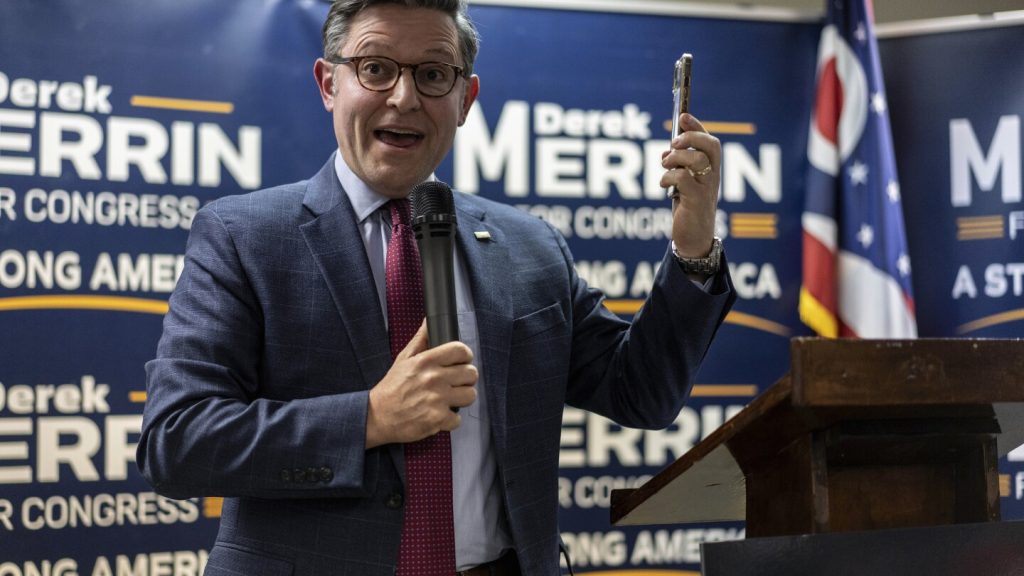House Speaker Mike Johnson sparked controversy on Friday when he suggested that Republicans may try to repeal the CHIPS Act, a legislation that has spurred U.S. production of semiconductor chips. Johnson quickly walked back his statement, stating that he would like to instead streamline the legislation. The CHIPS Act, which poured $54 billion into the semiconductor manufacturing industry, has been credited with spurring investments and creating jobs by the White House. Vice President Kamala Harris has used the legislation as a key talking point on the campaign trail.
Democrats seized on Johnson’s initial comments, portraying them as part of an aggressive conservative agenda that aims to dismantle popular government programs. Johnson’s comments come amidst a broader push by Republicans to roll back regulations and requirements associated with the CHIPS Act. The incident highlighted Johnson’s struggle to balance his ties to former President Donald Trump with his duty to support vulnerable House colleagues in tough reelection battles.
The focus of Johnson’s comments was on Rep. Brandon Williams, a New York Republican whose district is expecting a large new Micron semiconductor manufacturing plant. Williams, who previously worked in the tech industry and supported the CHIPS Act, clarified that Johnson apologized for his remarks and claimed he misheard the question. New York Governor Kathy Hochul, a Democrat, warned against repealing the legislation, citing potential job losses and economic impact.
The CHIPS Act has already provided $30 billion in support for projects in 15 states, generating thousands of jobs in the manufacturing and construction sectors. The funding has attracted private capital and aims to increase U.S. production of advanced computer chips to 30% of the global market. Democrats have seized on Johnson’s comments to highlight their support for manufacturing jobs and economic growth, particularly in regions reliant on factory employment.
As the midterm elections approach, the political fallout from Johnson’s comments could impact Republican efforts to retain a narrow majority in the House. Democrats are hoping to leverage the controversy to appeal to working-class voters in key districts. Vice President Harris, while touring a semiconductor factory in Michigan, emphasized the importance of legislation like the CHIPS Act in creating jobs and boosting American competitiveness in the global market. Ultimately, the fate of the CHIPS Act and its impact on the semiconductor industry remain uncertain as political tensions surrounding the legislation continue to escalate.














